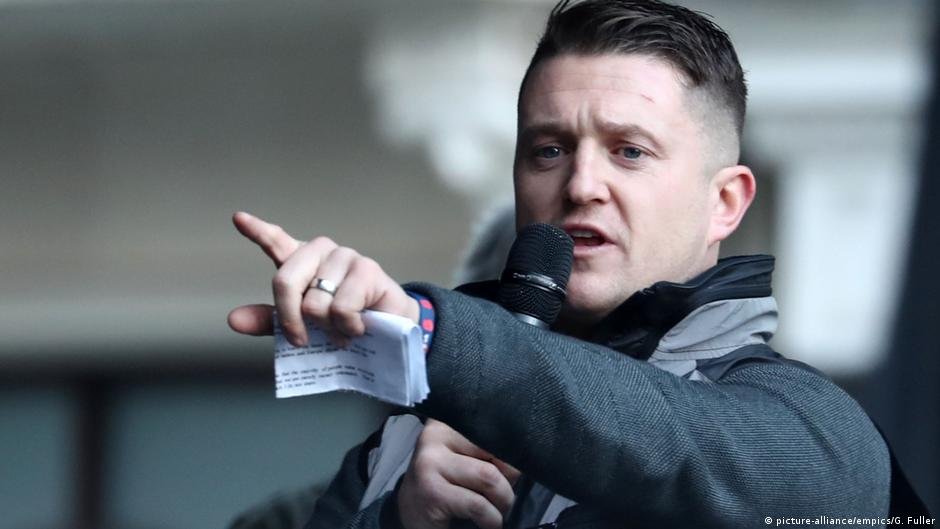Ake Achi, founder of the UK-based rights group Migrants at Work, received a threatening message mailed to his home, which left him fearing for his family's safety. Despite reporting it to the police, his case was dismissed.
Ake Achi was opening his mail, prepared to go through the usual correspondences, but what he received was much more chilling.
The one-page typewritten letter stated that Achi was "causing trouble" and that his "time was up".
"I was thinking I would go through some bills, maybe find a postcard from a friend who had traveled somewhere but not this," Achi, 49, told InfoMigrants.
More worrisome for Achi was the fact that the letter had been posted to his residence.
"This was a typewritten letter and mailed by post to my personal address. They did their homework. Someone actually took the time and trouble to find me and send this to me," said Achi whose personal address is not available publicly.
The migrant rights defender added that the letter made him feel that he was being watched and made him fearful for the safety of his wife and children.
"I had to read the letter three times to see what was actually happening. I never received such a threat before." Achi, a lived experience human trafficking expert, has been advocating for worker rights for over 28 years.
Achi, whose country of origin is the Ivory Coast, said that he would have expected such threats in his home country or other countries where rights defenders are constantly under attack by nefarious actors but not in the United Kingdom.
"Trade unions and human rights defenders, I thought, are generally safe. Clearly, it looks like we are not," said Achi.
Not the only one
Achi brought the letter to the West Midlands police to file a complaint and was sent home after being told to safekeep the letter.
It was about 21 minutes later, said Achi, when he heard back from the police telling him that the case did not fall under any crime category.
The British newspaper The Guardian reported last week (on July 27) that a spokesperson for the West Midlands Police said that the letter was "subject to a number of reviews" and the "investigation has been closed pending any further information coming to light."
"The police said that it was because the letter was sent anonymously. If someone is going to send me a threat through a letter, should they include their name, address and telephone number?" asked Achi.
After news about the distressing incident came out, Achi said that other rights defenders contacted him to say that they had received similar threats and their complaints were also reportedly dismissed by the police.
"What does this say to migrant workers when those who are supposed to defend them do not have protection? It sends a signal that authorities will not help them because they could not even help you," said Achi.
Jakub Sobik, Communications Director at the Modern Slavery and Human Rights Policy and Evidence Centre, told InfoMigrants that State recruitment of foreign labor comes with a State responsibility to ensure worker protection.
“People who come to the UK to work in sectors such as care or agriculture often end up in precarious situations because of the conditions attached to sponsored visas, and many end up being exploited," said Sobik.
“UK authorities and employers have responsibility not only for protecting people who they invited to the UK to fill skill shortages in some sectors, but also those advocating on behalf of the workers," he added.
Fighting for migrant rights
In his work as executive director of Migrants at Work which was founded in 2018, Achi has been dealing with foreign workers hired from overseas who are unlawfully charged fees for employment sponsorship certificates or other similar documents related to employment in the UK.
Sponsorship certificates issued by a prospective licensed employers are necessary for a foreign national to work in the UK. The costs for sponsorship should be borne by the employer, but some people who are unaware of the regulations are misled by some recruitment agencies to believe that they have to pay thousands of pounds for this document which essentially certifies their right to work.
In cases of worker exploitation or worse, workers coming to the UK and finding that the job they were promised and had paid for does not even exist, foreign laborers seek Achi’s assistance.
According to Achi, he sees a lot of this kind of illegal recruitment happening in many labor sectors and called it "homegrown slavery" because it is supported by State internal policies.
When Migrants at Work receives a complaint, they mediate so that the employer or the recruitment agency gives the worker back their money or Migrants at Work will pursue them through the legal means available.
The Home Office agency may revoke the employer or recruitment agency’s business permit but do not compel them to shut down their operations.

The redress mechanism may offer the hope of workers getting their money back but does little to solve the problem.
"Even if the sponsor's license is revoked, there is nothing that stops them from recruiting foreign workers who are already in the UK and are desperate for work. International recruitment via the visa sponsorship scheme has been designed as an international human labour supply chain to slavery," said Achi.
"We sometimes think of criminals as those who are engaged in hardcore crimes by trafficking migrants through irregular migration routes. It is not always the case. These are often licensed businesses. These are people who know how to work within the law and abuse the (immigration) system. I call them domestic organized criminal gangs," he added.
Increase in anti-migrant demonstrations
The United Kingdom, suffering from a labor shortage that was exacerbated by Brexit, is desperate to recruit more foreign workers from overseas to fill in gaps in healthcare, construction, and various other industries.
However, public sentiment, fueled by government statements and policies that are anti-migrant is creating a divide in British society.
According to a 2024 study by UK-based NGO Hope Not Hate, anti-migrant sentiment has surged dramatically in 2023, with a significant increase in related activism across the country. Far-right anti-migrant activities occurred on at least 278 days in 2023, marking a 20 percent rise from 2022.

The nature of this activism has also evolved. While 2022 saw the majority of incidents involving "migrant hunters" visiting temporary accommodation sites to harass staff and residents, 2023 experienced a sharp increase in anti-migrant demonstrations. Following a riot at the Suites Hotel in Kirkby, Merseyside, demonstrations rose nearly 18-fold, with at least 123 protests held throughout the year. This shift brought the balance of demonstrations and "migrant hunter" visits closer to even, with 158 harassment incidents reported.
"Migrants are always a scapegoat for the government to cover up the problems they cannot solve because we are easy targets. I think, instead, people like me with a lived experience of migration and human trafficking should be involved in policy discussions and legislation," said Achi.
